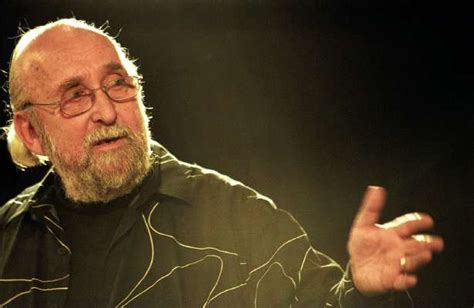A Quote by Roberto Bolano
Related Quotes
There's a sameness about American poetry that I don't
think represents the whole people. It represents a poetry
of the moment, a poetry of evasion, and I have problems
with this. I believe poetry has always been political, long
before poets had to deal with the page and white
space . . . it's natural.
As poetry is the highest speech of man, it can not only accept and contain, but in the end express best everything in the world, or in himself, that he discovers. It will absorb and transmute, as it always has done, and glorify, all that we can know. This has always been, and always will be, poetry's office.
I'm saying that the domain of poetry includes both oral & written forms, that poetry goes back to a pre-literate situation & would survive a post-literate situation, that human speech is a near-endless source of poetic forms, that there has always been more oral than written poetry, & that we can no longer pretend to a knowledge of poetry if we deny its oral dimension.
I find it strange that - at least in my take on it - the people who are the most alarmed about the dire times we live in are the ones who seem to be humorless, in their taste for poetry anyway. Humor is just an ingredient. It's always been in poetry. It kind of dropped out of poetry I think during the 19th and up to the mid-twentieth century. But it's found its way back. And it's simply an ingredient.







































